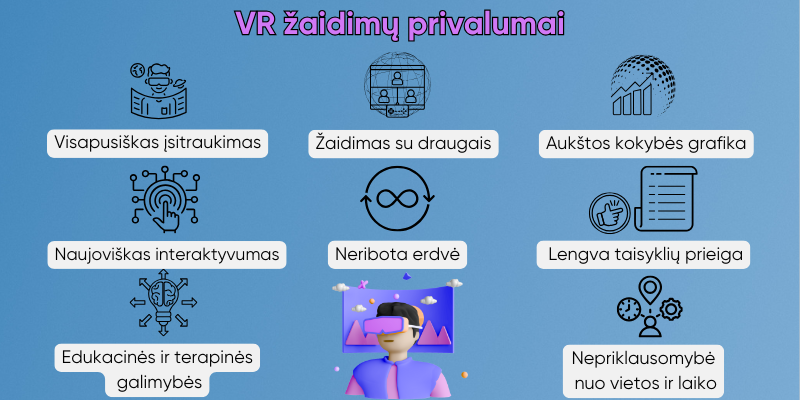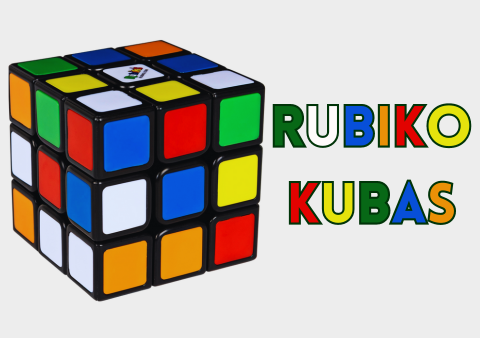Board games are entering the world of Virtual Reality (VR), bringing new experiences and interactive ways to enjoy well-known games. This change is made possible by advances in VR technology, which allows players to experience the pleasures of gaming in an immersive environment.
In this article you will learn about the pros and cons of VR games, how they are changing the tabletop gaming experience and what the future holds.
Pros and cons of VR games
Let's take a look at the main advantages and disadvantages of virtual reality games compared to traditional board games:
Benefits
- Full engagement with the environment - VR technology allows you to immerse yourself in the game and feel like you're inside the game world.
- Play with friends around the world - you can interact with people from different countries and cities while enjoying the game itself.
- Impressive visual effects - VR graphics deliver high quality visuals to create an immersive game environment.
- Interactivity not acknowledged - VR offers new experiences that are not possible with traditional board games.

- Unlimited space - VR games offer the opportunity to create bigger and more complex games, regardless of the limitations of physical space.
- Easy access to information and rules - Players can view the rules and other information in a virtual reality environment without leaving the game.
- Educational and therapeutic opportunities - VR board games (VR board games. VR board games) can be used for learning or therapy, adapted for educational purposes.
- Location and time independent - VR games can be played anywhere, anytime, regardless of the environment.
Disadvantages
- Lack of physical contact - VR board games do not offer the live interaction that often enriches the game atmosphere.
- Expensive equipment - VR gaming requires special equipment, which can be expensive.
- Risk of addiction - Long-term use of VR can lead to over-involvement, with the risk of addiction.
How is VR changing the board game experience?
Virtual reality changes the dynamics of traditional board games, giving you more options and experiences.
Immersivity
VR technology allows players to feel as if they are in the game world. Realistic environments and visual effects create a heightened sense of engagement that traditional board games don't usually have.
Interactivity
VR offers more opportunities for interaction. Players can use hand movements, sounds and other sensory experiences. This creates a more immersive experience than the traditional physical components of the game.
Social interaction
VR board games allow you to interact with people from all over the world, making the game not just a form of entertainment but also a way of communicating that encourages international communication.

Wider development possibilities
Virtual reality gives developers more freedom to create. It allows you to create games with a wider range of possibilities that are not possible in traditional board games.
Examples of VR games
Virtual reality successfully replicates classic board games, giving rise to new genres and hybrid solutions.
Classic board games, transferred to a VR environment:
- Chess
- Card games
- "Monopolis"
- "Risk"
- "Settlers of Catan"
- "Ticket to Ride"
- "Clue"
New genres and hybrid solutions
In the world of virtual reality, unique games are emerging that combine elements of traditional board games and VR games:
- VR escape rooms: The Room VR: A Dark Matter - Players solve various puzzles and search for clues to escape mysterious rooms.
- Military strategy games: Brass Tactics - Players command armies and plan strategies in real time using a virtual war field.
- Educational VR games: Nation's Anatomy VR - a game where players learn about the anatomy of the human body by manipulating virtual organs and systems.
The process of developing VR games
Developing VR games is a complex process and involves a variety of technologies. It consists of creative, programming and technological decisions.
VR games use advanced graphics technology to create detailed and realistic virtual worlds.
It is also necessary to use special devices, such as VR glasses and controllers, to help the player move and interact with the game environment. Communication technologies are also important in social VR games, allowing players to communicate with each other in real time.
Future prospects for virtual reality games
The future of virtual reality gaming looks very exciting and promising, as the technology is rapidly advancing and opening up more and more new possibilities.
Game development
VR games will continue to evolve, providing an even more realistic and immersive gaming experience. New input devices and innovative technologies will allow players to become even more immersed in the game world.
Integration into other areas
While VR games are already being used in fields as diverse as education, medicine and architecture, the future is likely to see even more applications in other sectors.
Impact on society
Virtual reality games are transforming social interactions and creating new forms of entertainment. In the future, they will become an important part of our daily lives, allowing players to interact and share experiences with others regardless of their location.
Conclusions: VR games
In the future, VR games could become an important part of social interaction and entertainment, constantly offering innovative experiences. VR board games have great potential in the future and are likely to become even more integrated into our daily lives.
Virtual reality technologies are revolutionising the tabletop gaming experience, bringing more interactivity, immersion and the ability to interact with players around the world.
While VR will not completely replace traditional board games, it will certainly add to the field, opening up new entertainment possibilities.
FAQ on VR board games
What are VR board games❓
VR board games are traditional board games brought into virtual reality. Playing with VR glasses allows you to enjoy an interactive, 3D environment.
How VR board games differ from traditional games❓
The main difference is inclusion. VR games immerse you in the game world with stunning visual effects and interactive elements. Moreover, it is possible to play regardless of the physical location of the players.
Which VR board games are the most popular❓
Among the most popular are VR versions of classics like Chess, Monopoly, Risk, Settlers of Catan, Ticket to Ride and Clue. New hybrid games such as VR escape rooms and war games are also emerging.
Are VR board games expensive❓
VR games require special equipment such as VR glasses and controllers, which can be expensive. But prices are coming down and technology is becoming more affordable.
What are the advantages of VR board games❓
VR games provide a memorable and immersive experience, allowing you to play with friends from all over the world and offering educational and therapeutic opportunities. They also offer the opportunity to create complex games without the constraints of physical space.





